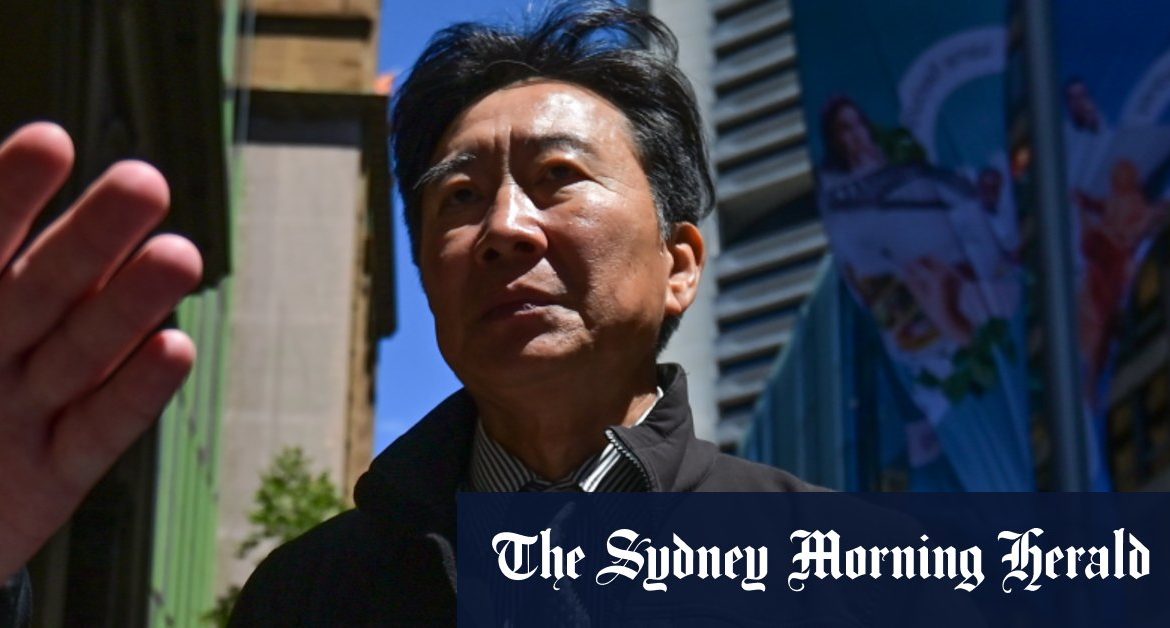In her opening statement, Crown prosecutor Jennifer Single, SC, said Mr Choi was telling people he had connections to “Kim Jong Un, the Supreme Leader”. She said he also told people on numerous occasions that he acted on behalf of North Korea, which he referred to as “our Motherland” and visited North Korea on at least seven occasions.
Chan Han Choi is the first person to be charged under Australia’s weapons of mass destruction laws.Credit:Steven Saphore
Mr Choi’s defence counsel, Robert Webb, said the case rested on whether his client “is anything more than a bag of hot air”.
Mr Webb said it would be up to the jury to consider “whether or not the Supreme Leader had ever even heard of him … whether anyone with any clout in North Korea had ever heard of Mr Choi from Eastwood”.
Ms Single said the jury might find it implausible and a “bit of a joke” that a man “sitting in an apartment in Eastwood” was brokering deals on behalf of North Korean. But once they see the evidence, she said, “not only will you conclude that this is in fact possible, but you will conclude it did in fact happen.”
The prosecution will rely on seized documents, emails and telephone communications – most of which have had to be translated from Korean, Russian and Chinese – which the Crown says show Mr Choi was seeking to broker the illicit transactions knowing they contravened sanctions.
Ms Single said the jury would hear that in some of these communications, Mr Choi referred to “pine trees” and a “nursery”, which the Crown will allege was code for the North Korean missiles he was attempting to sell.
Mr Choi also allegedly emailed brochures of American-made military equipment asking “whether North Korea could produce something better, of higher performance”. In another seized email, he attached a handwritten note of a chemical equation.
During the trial the jury would hear from military and scientific experts who would explain the significance of Mr Choi’s communications, Ms Single said.
It did not matter that every alleged transaction ultimately failed, she said. “What is important is the accused’s role … that he was involved in brokering those transactions.”







